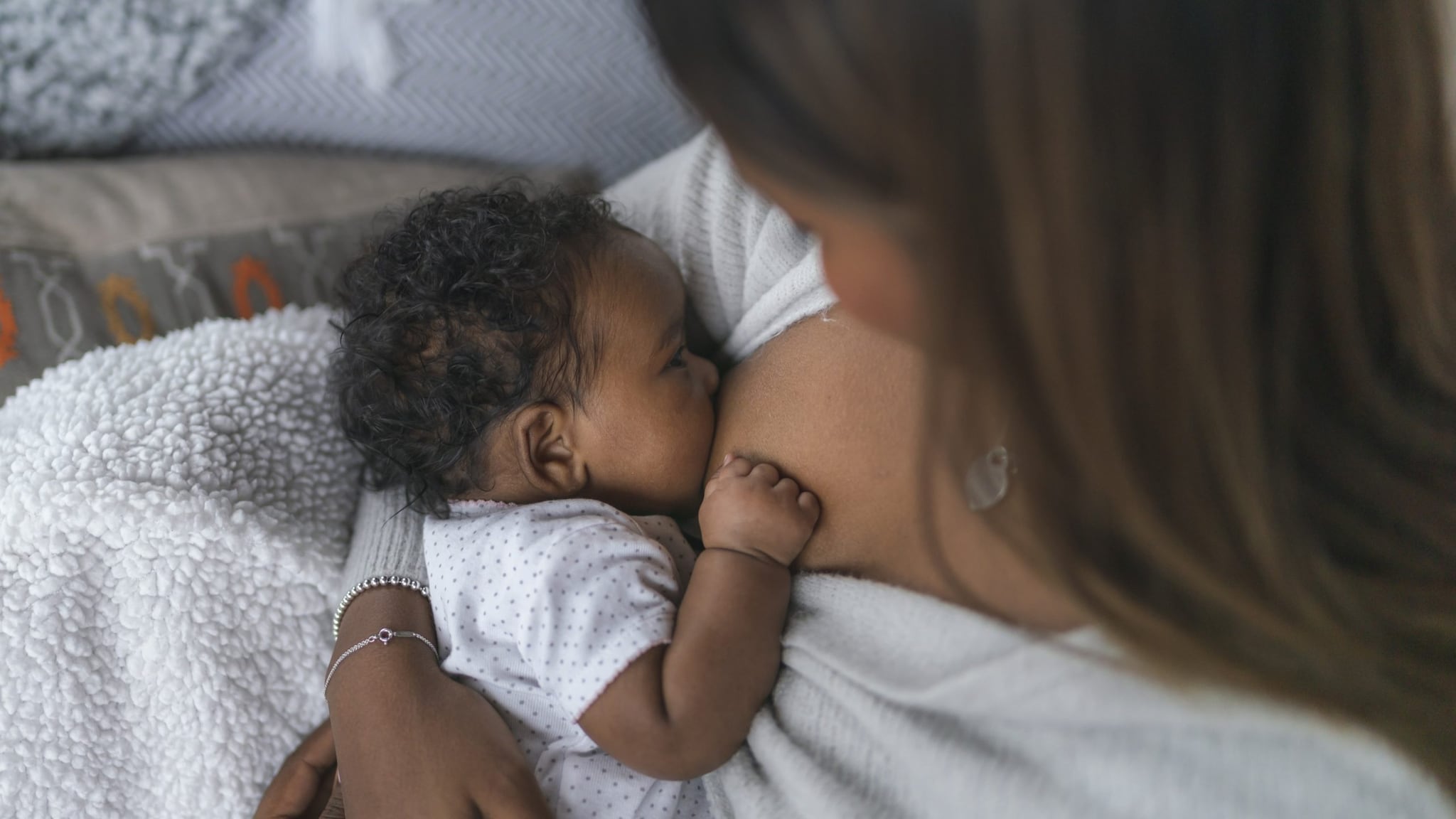At a glance

First days
Your newborn baby's belly is tiny. Your baby does not need a lot of milk with each feeding to be full.
Your baby may want to eat as often as every 1 to 3 hours. Frequent feeding helps increase your milk supply and gives your baby practice at sucking and swallowing. You may be able to hear your baby sucking and swallowing the breast milk.
Most babies who are getting breast milk should not be fed infant formula in the first few days. If you are concerned about meeting your baby's needs, talk to a lactation consultant or your baby's nurse or doctor. They can help you address any breastfeeding problems and figure out the best way to meet your baby's needs.
First weeks and months
As babies grow, their bellies grow too. Your baby will gradually be able to drink more breast milk at each feeding.
Over the first few weeks and months, the time between feedings will start to get longer. On average, most exclusively breastfed babies will feed every 2 to 4 hours. Some babies may feed as often as every hour at times, often called cluster feeding. Or they may have a longer sleep interval of 4 to 5 hours.
How often your baby feeds might change depending on the time of day. Some feeding sessions may be long, and others short. That's OK. Babies will generally take what they need at each feeding and stop eating when they are full. They should seem content and drowsy after feeding when they have had enough milk.
Your baby will breastfeed about 8 to 12 times in 24 hours.

6 to 12 months
How long and how often babies breastfeed will change as they grow and start eating more solid foods. Continue to follow your baby's cues and breastfeed when you notice signs of hunger. This is sometimes called breastfeeding on demand.
If your baby seems less interested in breastfeeding after you introduce solid foods, try breastfeeding before you offer other foods. Your breast milk is the most important source of nutrition, even after you start feeding your baby solid foods.
12 to 24 months
The number of times a day a toddler breastfeeds varies. Some want to breastfeed only before bed or in the morning. Others continue to drink breast milk as a larger portion of their daily diet. Continue to follow your child's cues to decide when they are hungry and want to breastfeed.
